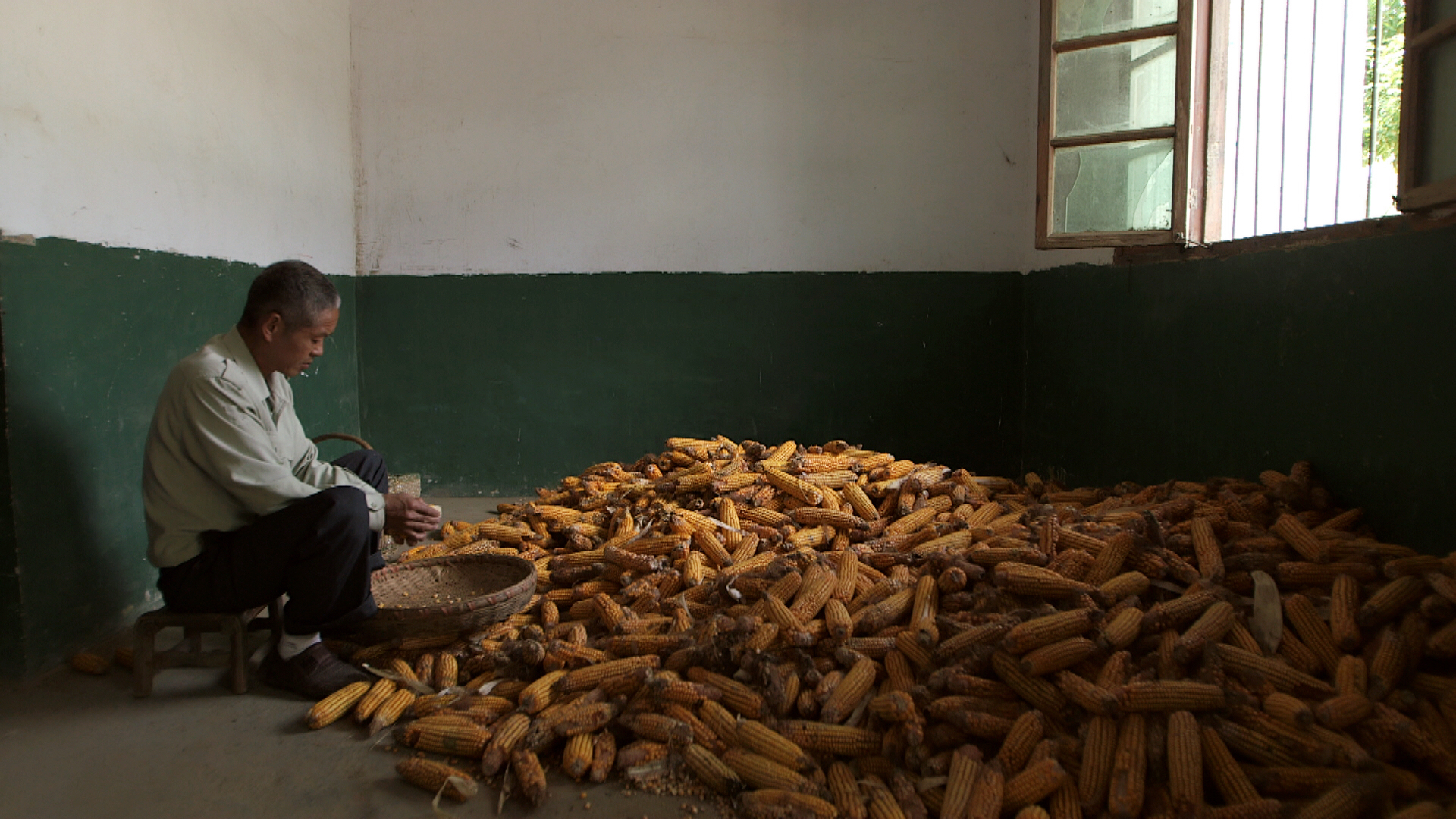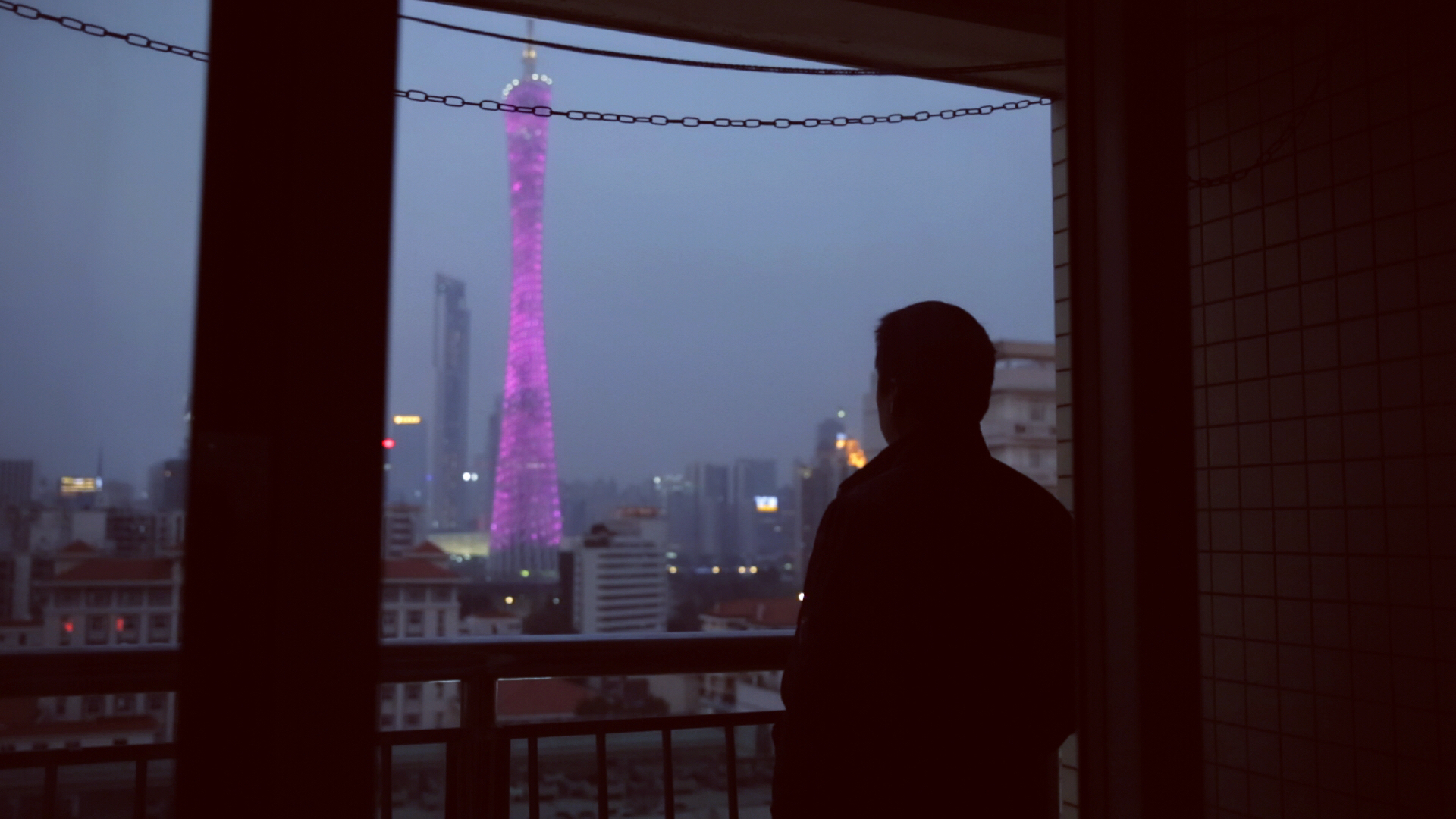Complicit - Who pays the price // Verzio X ELTE

Watching Complicit made me want to pack and take off to Guangzhou, China’s third most populous city, to join Yi YeTing in his fight against Foxconn and occupational leukemia. And that’s exactly what a great movie does: it leaves a sign, it marks the viewer in a determinate way, it injects a feeling under your skin that you can’t quite shake. Debut feature directors Heather White and Lynn Zhang do an absolutely stunning job in capturing human fragility, strength, sufferance and frustration, presenting it to the audience in a poetic, melancholic and empowering way. Heather and Zhang spent years following YeTing and his battle with his own cancer and for other fellow workers rights. You can feel the tension and the passion the crew who worked on this project put into the film in every shot where there are people in. A shot of a young 22-year-old who won’t survive his sufferings staring right into the camera, a father who lost a son shouting at Foxconn surrounded by other protesters with banners at the gates of Foxconn, girls staring at the lights of Guangzhou making bubbles on a boat, the colours of the sunset, the skyscrapers and bright lights on the background to remind us of their broken dreams. The directors guide the viewer into a journey intended to sensitise the audience to the issue of occupational diseases and corporation’s indifference to human loss, grief and fear.

photo: Complicit
Complicit is an outstanding documentary not only because of its compelling story and skilled directing, but also because of its cinematography, which conveys an intimate feeling throughout the whole movie. With close-ups, artistic composition, attention to human emotions, and a really smooth camerawork, the directors manage to engage the viewer closely with what is happening onscreen. The tone is sad, obviously, but White and Zhang’s work also evoke rage. I dare anyone to watch Complicit without feeling at least a little bit of anger towards people like Boss Gou (Terry Gou), founder and chairman of Foxconn, who said the following quote to a grieving family of a Foxconn worker died of occupational leukemia: ”Your son is already dead, why would I give you money”. The movie’s special attention to detail and Chinese culture is present from the beginning. What also contributes to a sense of closeness with YeTing and others are the shots of family moments, cuddles, typical Chinese food, daily routine. For example, the documentary starts with a funeral in the countryside, where the rite is developed according to Chinese rituals and traditions. A coffin is taken to a forest and a man is buried. People moan, loudly. The body belongs to a former employee of Foxconn, one of the many victims of benzene intoxication. Benzene is a clear, liquid, petroleum-based chemical that has a sweet smell. Benzene poisoning occurs when someone swallows, breathes in, or touches benzene. Benzene and n-hexane are the chemicals retained responsible for leukemia (the former) and damages to the nervous system (the latter). Images of patients in hospital rooms, weakened bodies, shacks, the countryside, contrast with the colourful shots of the Guangzhou, modern buildings, factories, vibrant life and richness. The alienation that a big-city-life produces is confronted with the reality of the poorer Chinese countryside, from which the workers of the factories come from. They’re the perfect prey for the fierce beasts that corporations are depicted as. Working for 3 or 4 days straight with no sleep, “Giggly teenagers arrive, but after working long hours at such jobs as wiping phone screens for 12 hours a day with carcinogens like benzene and n-hexane, they are exhausted before they’re 23, with sick bodies weakened by pain and suicidal psyches full of guilt for their aging parents.” (Mandel 2017).The sense of isolation and alienation is conveyed by shots of masses walking in Guangzhou, images of phones being assembled, Chinese workers wiping screens with chemicals, factory environments with poor ventilation and machinery working fast, while the protagonists of the documentary tell us the story of their lives, and how they got occupational diseases intoxicated at their workplace. The directors leave the stage entirely to the people they’re engaging with, never appearing on camera or in voiceover, when words aren’t enough, the directors explain with intertitles. White and Zhang let their respondents speak for themselves. This produces an intimate effect on the audience, it makes you feel like you’re there with them, like you could reach out to the screen and hug them. The victims of benzene and n-hexane tell us about their hopes for a better life in the city, they’re endless and excruciating working hours, the mental alienation, the numbness of their limbs after having been constricted to do the same movements over and over and over. They tell us about pride and dignity, indifference and human cruelty.

photo: Complicit
White and Zhang spent three years following Yi YeTing demanding recognition for occupational illnesses. He dares to correlate hot spots of leukemia and nerve disorders with specific employers. Foxconn is the multinational company responsible of the illnesses of its workers, and they supply major electronics companies such as Samsung, Philips, Nokia and Apple, their biggest client. The strive for justice and better work conditions extend outside of the documentary, indeed the directors are spearheading a petition to “Demand Apple and Samsung Protect Workers from Being Poisoned”. Something different from frustration, misery, impotence and desolation starts to emerge towards the middle of the documentary, which takes a turn. Determination. The shots become shorter, the rhythm faster. YeTing seems not willing to settle for anything less than what is fair: a future where his child won’t have to witness what he did, and workers who lost everything are compensated. Images of protesters, riots, TV news, and a secret infiltration move become prevalent. At this point, I was so into the movie I found myself clenching my fists in tension. “Maybe there is hope, maybe they’re going to win” – I catch myself thinking. But there is still a long way to go.China produces 90% of the world’s electronics alone, and the government supports multinationals like Foxconn. As if the situation wasn’t bad enough, the government tries to get in YeTting’s way by threatening his landlords so he has to move often, and arresting members of the non-profit organisation he’s working with. Despite many obstacles, the news goes international, and companies like Apple are pushed under a spotlight. However, big corporations would do anything before pleading guilty. Corporations lie, cover up, manipulate the public opinion and deny until they have exhausted every other possibility, even if it means sacrificing human lives, and many of them. The only thing they value and fear to loose is money. After some time Apple came out with the news “We banned benzene from our factories” and a really convincing spot on how they state they value healthy working conditions is released. White and Zhang add the full spot in the documentary, which ends with a black frame and white intertitles “Every life is enhanced”. Cut to YeTing and others reaction to the spot, sitting at a table. “THAT WAS SUCH A JOKE” says a member of YeTing’s crew. That cut was so powerful in making so obvious Apple’s fake interest in human lives that I couldn’t help laughing. But it was a bitter laugh, and made me feel ashamed of possessing Apple products myself.
It is rare a movie that succeeds almost on every level (especially a documentary) but Complicitdoes. Intimate feeling, poetic cinematography, compelling and clear storyline, contemplative moments, reflection, fantastic soundtrack marked by a distinctive violin melody, precise in conveying facts and figures, smooth editing, a sophisticated eye for detail, but at the same time simple in its delicacy. A documentary that demands attention and contemplation. It is a film with a purpose and a message, heart-breaking and beautiful.
Martina del Chiaro
student of ELTE Department of Film Studies